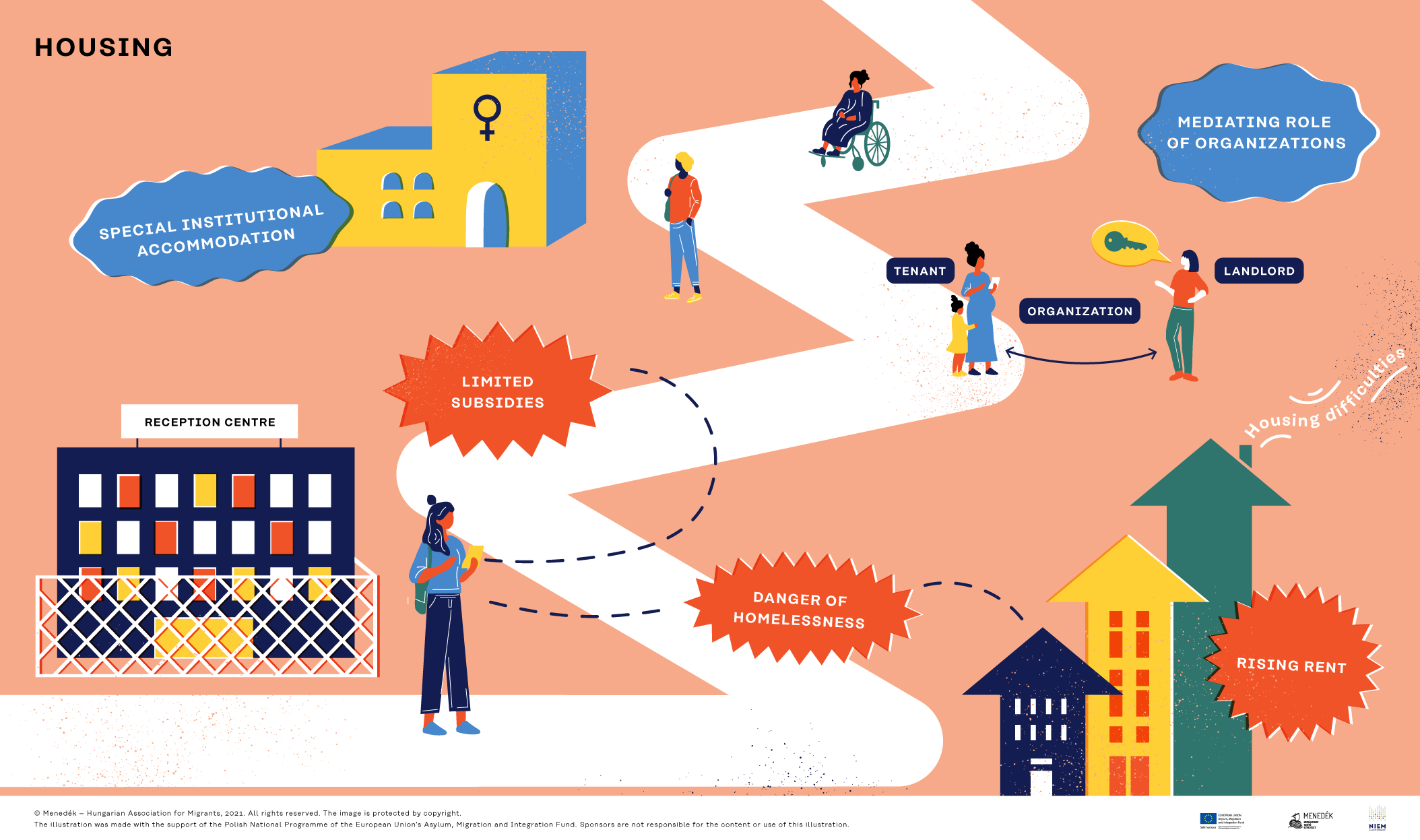
At present, the scope of state subsidies provided to those under international protection in Hungary in the field of housing does not differ from the subsidies available to Hungarian citizens.
However, these are generally extremely limited and are targeted to the more affluent social groups.
Housing support existed from 2008 to 2016 specifically for beneficiaries of international protection (subsistence benefits, integration contract), but these ran out by 2018, places at reception centers were reduced and EU funding to support organizations (AMIF) was made unavailable by the government.
Currently, a person enjoying international protection can stay in an open reception center for 30 days after obtaining the status, and if he or she does not arrange his or her accommodation during that time, there is a good chance he or she will end up in a homeless shelter.
Refugees may have particular difficulty in providing independent housing:
- lack of locational knowledge,
- scarce sources of information due to language constraints,
- job search difficulties, and
- prejudice and discrimination against foreigners.
Rents for private rental housing have risen sharply in recent years, and the number of state and municipal social rental housing has been low.
The central government should provide financial support through housing programs to those in need. These subsidies should primarily finance the social acquisition of property by the assisting organizations and local governments, as well as the implementation of the housing lease organized by the organizations. In the past, many sources have flowed through housing assistance programs to private owners, which is unsustainable.
Municipal rental housing can also be integrated into refugee housing programs in the long run by an organization that rents it out and provides housing for refugees. In this way, the municipality has a contractual relationship with the organization.
In addition to direct financial support, the central government can also help refugees to live through regulation:
- by providing targeted tax incentives, or
- by waiving the obligation to pay the levy.
In addition to financial support, aid organizations could receive not only administrative but also professional support from the relevant bodies of the central government, or the government or the municipality could provide them with preferential renting of offices.
It is also important to respond to the needs of particularly vulnerable refugee groups, such as women coming alone. In their case, it may be appropriate to maintain special institutional accommodation.
It would be worthwhile to systematically identify and co-operate with immigrant communities, informal or formal organizations that play / have played a role in improving the housing of Hungarian refugees.
